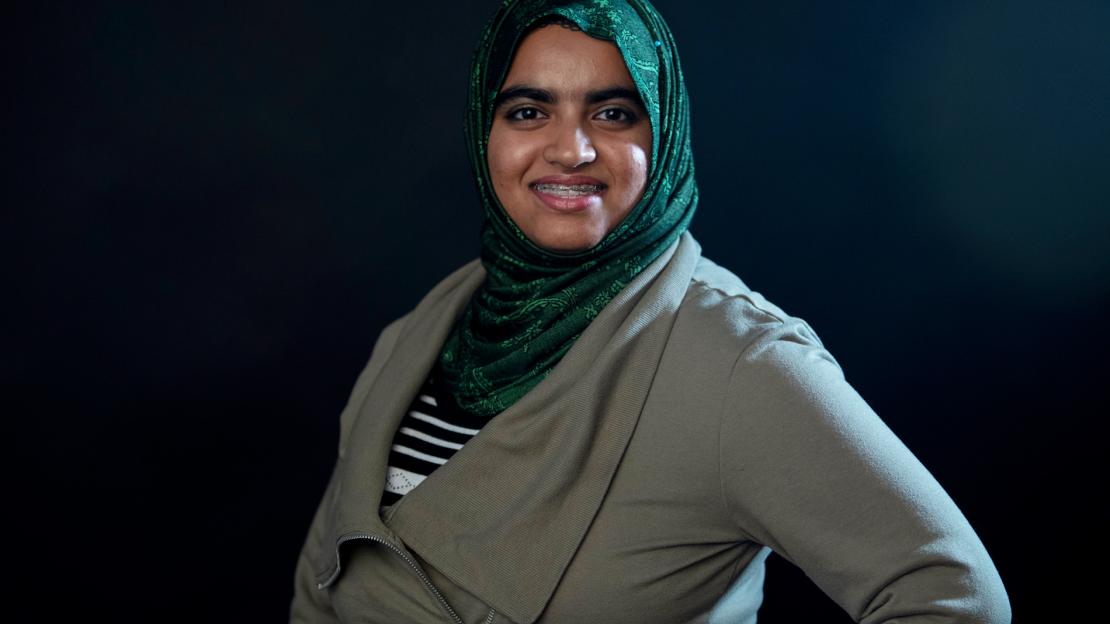The first time Faria Khandaker was sitting in a learning circle during an Indigenous Experiential Journey trip, she had a pen and notebook in hand, ready to take notes.
“You don’t need to remember everything,” Wendy Phillips, U of T Scarborough’s elder, told her. “You will remember whatever is relevant to your life right now.”
Since then, she’s gone to two more Indigenous Experiential Journeys and credits the experience with gaining greater clarity in her life. Throughout her time at U of T Scarborough, she struggled with her program of choice, and the thought of how what she was studying now would “effect” her later life.
“I was really struggling with my role in life,” Khandaker recalls. “Something that Wendy said was, ‘as we go through each stage of our life, we will be put into these roles. We won’t get put into them if we’re not ready, and even if you don’t feel like you are, you will be.’”
Khandaker graduated with a honours bachelor of science in anthropology and human biology.
Her academic involvements at U of T Scarborough are plentiful, with roles in the Department of Student Life. In her first year, she was both a mentee in the First Year Experience program and a mentor for high-school students with the Imani Mentorship Program. She was also a study abroad assistant with the International Student Centre, a peer academic coach with the First Generation Program, and an alternative reading week peer leader.
Her work as a lead mentor was important to her as the first member of her family to attend university in Canada.
“When I was a mentee in the program, we’d hear about how students from first-generation families tend to struggle a little bit more than students who are not,” she recalls. “I knew university was going to be hard, I just didn’t know we would be classified as that.”
But eventually, becoming a mentor in her second year let her encourage others to take full advantage of their time as students – including opportunities to study abroad. She’s learned the most of her valuable lessons outside of the campus.
In her fourth year, Khandaker studied at the Chinese University of Hong Kong, where she earned two Mandarin language credits and later travelled to Singapore for course work and to gain another language credit in Mandarin. It was also her first time travelling and living so far away from home, without any family near her.
“I’m still an indecisive person, but when you’re in a different country and things are not familiar to you, you have to learn to trust your own instincts,” she says. “Travelling has done that for me. I can be comfortable in the decisions I make.”
It wasn’t always an easy road. Khandaker thought she wanted to be a doctor – she was accepted to molecular biology co-op program – but changed her major to anthropology in her third year. She now hopes to apply for her masters in health informatics or information.
What has her time at U of T Scarborough taught her?
“Do things that take you out of your comfort zone,” she says. “If something scares you, it’s usually a good thing and something you can build on.”
